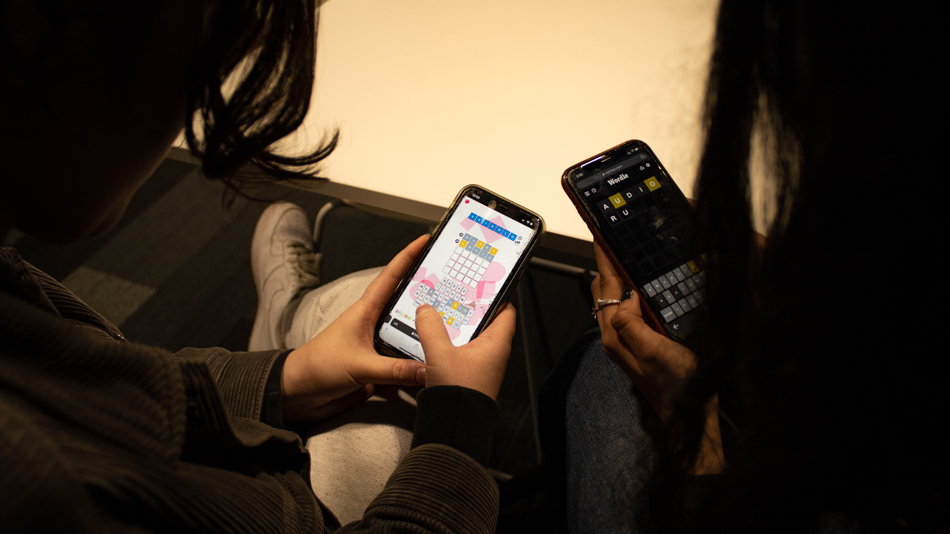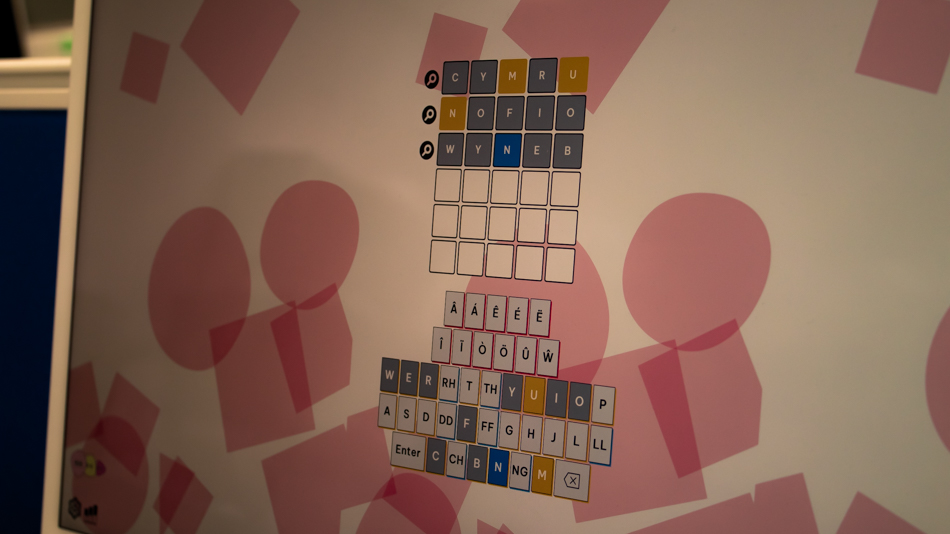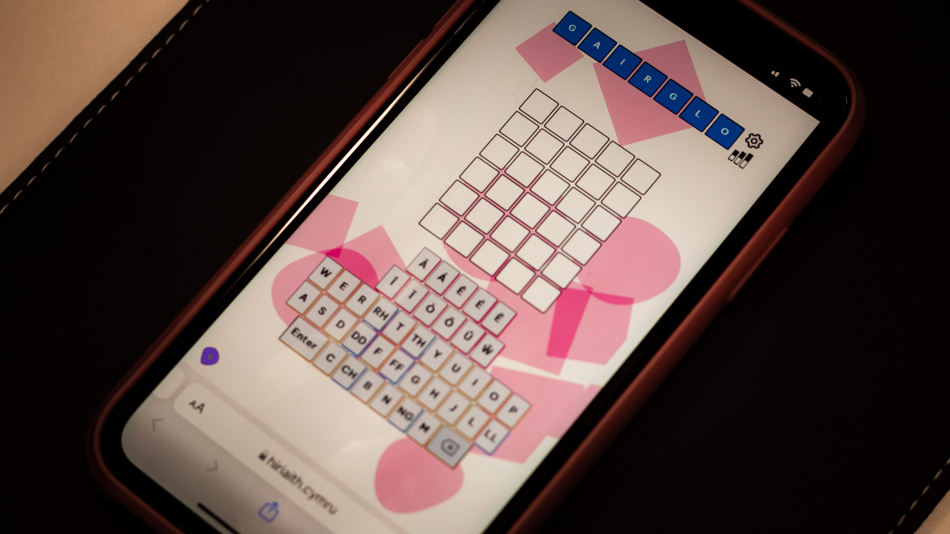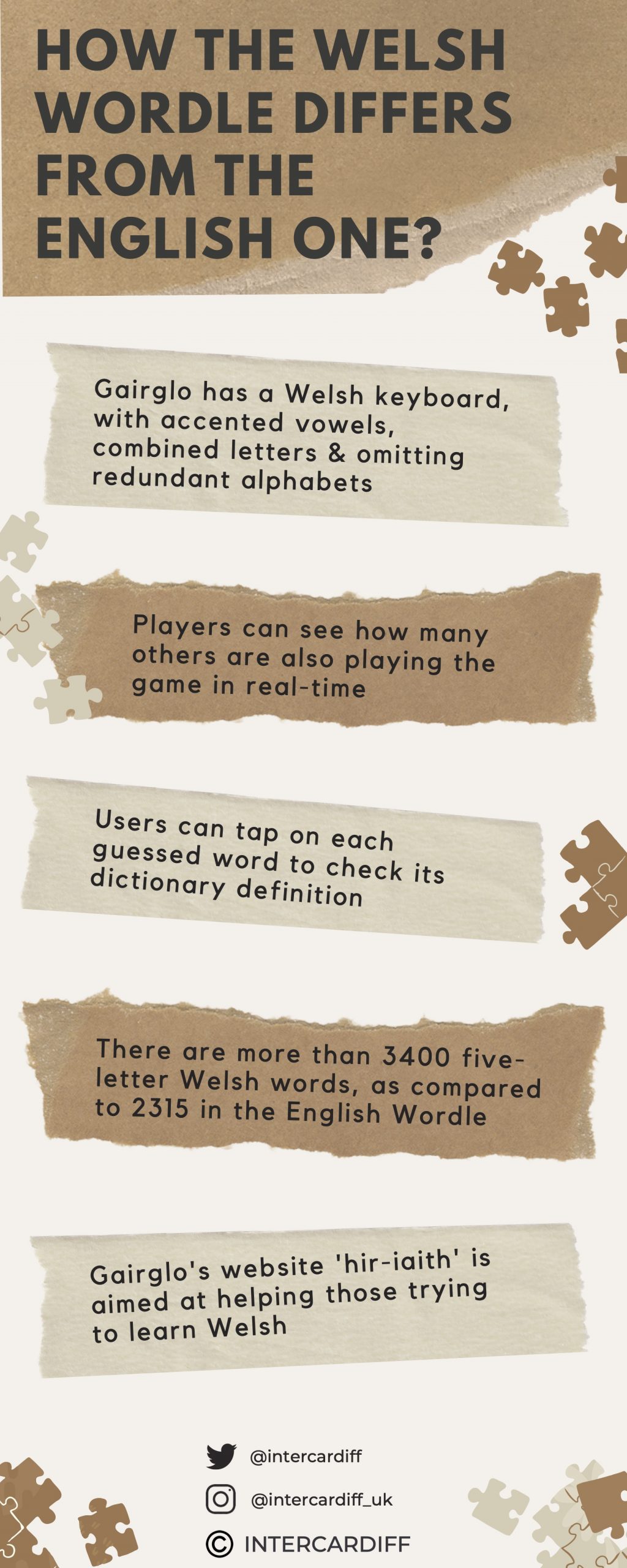With the English Wordle taking the world by storm, a Welsh speaker from Brazil is helping people from Wales enjoy the game in Cymraeg.

First he types the word “nofio”, then the word “wyneb”. A couple of blue and yellow squares indicate that he’s closer to guessing the correct five-letter word for today’s Welsh Wordle, called Gairglo. It should be especially difficult for Brazilian-born Rodolfo Piskorski, but there’s a catch — he’s the one who made the game.
Chatting with his friends about the fact that the original was made by someone from Wales, Roldolfo was inspired to create the game back in January.
“People were really enjoying Wordle — I was enjoying playing the English one too. It dawned on me that I have access to a Welsh dictionary, and I could use that to collect words and create a Welsh Wordle,” says Rodolfo, a Brazilian linguist who also speaks Welsh. “The game would still have all the cool aspects of Wordle — it’s simple, it’s addictive and it’s completely free.”

Gairglo — a Welsh version of the game Wordle that’s captured the global imagination — is an online game where players have to guess a five-letter Welsh word in six attempts, akin to its English counterpart. The coveted word changes every 24 hours and is the same for everyone, turning the game into a unique, communal experience.
Gairglo is available to play on Rodolfo’s website hir-iaith — basically a toolkit to help Welsh learners and is regularly supported through community feedback. So, when he launched Gairglo, keeping in touch with the users helped him improve the game and enabled it to evolve naturally.
For instance, the Welsh alphabet is strikingly distinct from its English counterpart, as it consists of accented vowels and combined consonants. “At the beginning, Gairglo didn’t have these features, but when somebody actually pointed it out, I started to put my head around it and think about how it could be done,” says Rodolfo.

Now, the game has removed the redundant English letters not found in any Welsh words (k, q, v, x and z) from its keyboard and replaced them with the additional native letters. The response has been overwhelmingly positive, with people on chat boards praising the game for being true to the language, unlike a few other Welsh replicas that still use the English keyboard.
Gairglo is also different from the other Welsh versions in how it’s catered to help learners of the language. Players can click on each guessed word to check its meaning. “The idea is that you can use it to learn new words, because you can sort of guess the missing letters to make possible combinations of words,” says Rodolfo. “Even in the original Wordle, if you don’t know the meaning, there’s nothing you can do. In Gairglo, once you guess a word, you can tap on an icon and get its dictionary definition.”
To Rodolfo, this matters because he is not a native Welsh speaker himself, having only learnt it after he moved to Cardiff for his PhD in 2013. “I like languages. Welsh was everywhere here and I always thought it was exciting. At the university, I could do the [Welsh language] courses for free, so I said ‘why not?’”, Rudolfo says.

Last year, Rodolfo became the first person to sit for the British citizenship test in Welsh, a feat he is quick to downplay by saying that the test hasn’t existed for a long time. But he stresses that his affection for Welsh should not get lost in the achievement. “The reason why I did the test in Welsh was because I’ve only lived here in Cardiff. So it’s inevitable that my understanding of the place in my identity as a British person is connected to Wales,” he says.
But the oddity of a native Portuguese speaker going out of his way to develop a Welsh language game is not lost on Rodolfo. He says, “That’s how languages work. Sometimes somebody who really enjoys or knows a lot about a language is actually from somewhere else.”
For now, he’s content with his game’s status and the community’s reaction. The one feature that Rodolfo really likes is that it shows you how many players are trying to crack the game in real-time. “Sometimes you’re in the middle of the night, there are like 10-15 people playing,” says Rodolfo. “So, I think the best part is this sense of a community; people sharing how they did, all of them playing the same words together and commenting. I think that’s what’s most important.”

